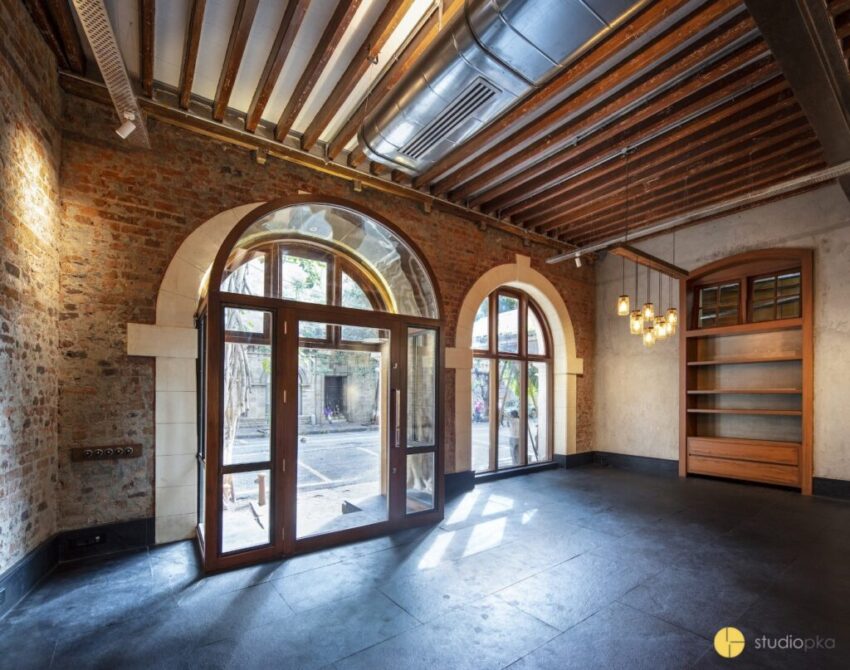Table of Contents
Heritage buildings—those storied structures that bear witness to our cultural, architectural, and communal legacy—require specialized care far beyond standard construction or renovation practices. Heritage building services encompass a unique blend of craftsmanship, conservation science, and regulatory compliance, all aimed at preserving authenticity while ensuring these landmarks remain safe, functional, and sustainable. Whether you’re restoring a Victorian townhouse, revitalizing an Art Deco theater, or converting an old mill into modern offices, partnering with experienced heritage specialists is essential.
1. Comprehensive Condition Surveys & Conservation Plans
Every successful heritage project begins with a detailed condition survey. Heritage building specialists conduct:
- Architectural Documentation: Photogrammetry, measured drawings, and historical research establish the original fabric and past alterations.
- Material Analysis: Laboratory tests identify original mortar mixes, paint layers, timber species, and stone types.
- Structural Assessment: Engineers evaluate foundations, load-bearing walls, and roof timbers to pinpoint weaknesses and inform stabilization strategies.
- Conservation Management Plans: These documents outline significance statements, intervention approaches, and maintenance schedules—ensuring all work aligns with best-practice charters like the Venice Charter or local heritage guidelines.
A thorough survey and plan lay the groundwork for targeted repairs and grant applications.
2. Authentic Material Sourcing & Craftsmanship
Heritage structures often feature materials and techniques no longer in general use. Heritage building services include:
- Salvage & Reclamation: Recovering original bricks, cast-iron elements, or decorative moldings for reuse.
- Specialist Fabrication: Recreating hand-carved stone capitals, timber joinery, or leaded-glass windows to match historic profiles.
- Traditional Techniques: Lime-based mortars, wattle-and-daub infill, and breathable natural paints preserve the building’s ability to manage moisture and vapor.
- Skilled Tradespeople: Master stonemasons, heritage carpenters, and decorative plasterers ensure every detail honors the original craftsmanship.
These efforts maintain authenticity and longevity, preventing incompatible repairs that can damage the building over time.
3. Structural Stabilization & Adaptive Reuse
Some heritage buildings require structural intervention to accommodate new uses—whether a gallery, apartments, or commercial space:
- Discreet Reinforcement: Stainless-steel anchors, carbon-fiber strips, or hidden steel frames strengthen walls and floors without altering historic appearances.
- Services Integration: Upgrading electrical, plumbing, and HVAC systems using minimally invasive routes—often within existing voids or behind unobtrusive panels.
- Accessibility & Safety: Installing lifts, ramps, and fire-safety features in ways that respect original layouts and sightlines.
- Adaptive Reuse Design: Creative architects reimagine underutilized areas—attics become boutique suites, and courtyards transform into light-filled atria.
Adaptive reuse extends a building’s functional life while stimulating local economies and reducing embodied-carbon compared to demolition and rebuild.
4. Regulatory Compliance & Grant Assistance
Working on a listed or protected building involves navigating complex regulations:
- Heritage Permitting: Specialists prepare and submit conservation-focused applications to Heritage Councils or local preservation boards.
- Building Code Solutions: Applying performance-based codes or “equivalent solutions” to achieve fire safety and accessibility targets within heritage constraints.
- Grant & Tax Incentive Support: Identifying and applying for public funding programs—such as conservation grants, heritage tax credits, or low-interest loans—to offset restoration costs.
- Stakeholder Liaison: Coordinating with historians, conservation officers, neighbors, and community groups to build consensus and address concerns.
This expertise streamlines approvals, avoids delays, and leverages financial support for heritage projects.
5. Preventive Maintenance & Conservation-Led Repairs
Long-term preservation hinges on regular, low-impact maintenance:
- Annual Inspections: Checking roof flashings, guttering, masonry pointing, and joinery seals to catch issues early.
- Gentle Cleaning: Using steam or micro-abrasive techniques to remove biological growth and pollution without harming delicate stone or brick surfaces.
- Monitoring Systems: Installing crack gauges, moisture sensors, and environmental loggers to track building health in real time.
- Repointing & Timber Treatment: Replacing deteriorated mortar and treating historic timber against rot and pests using reversible methods.
Proactive care reduces the need for major restorations and preserves original materials for longer.
6. Case Studies of Heritage Excellence
Victorian Mansions Reborn
A late-19th-century manor house underwent full envelope restoration—repairing slate roofs, recasting cast-iron balustrades, and reinstating decorative polychrome brickwork—before being converted into luxury apartments, balancing historic character with modern amenities.
Art Deco Cinema Revival
An iconic 1930s movie theater regained its original façade colors and neon signage, while the interior was adapted for live performances and community events, demonstrating how heritage restoration can reinvigorate cultural hubs.
Historic Industrial Conversion
A disused textile mill’s multi-story red-brick structure was stabilized with hidden steel frames and re-purposed into coworking spaces, preserving its industrial aesthetic while injecting new life into a declining precinct.
7. Selecting the Right Heritage Building Service Provider
Choosing a qualified team makes all the difference:
- Specialist Accreditation: Look for membership in ICOMOS, APT (Association for Preservation Technology), or national heritage bodies.
- Track Record: Request portfolios and references highlighting similar restorations and adaptive-reuse projects.
- Interdisciplinary Collaboration: Ensure they offer in-house architects, engineers, conservators, and skilled craftspeople—or strong partnerships with experts.
- Clear Communication: A good provider translates technical conservation jargon into plain English, keeping you informed at every stage.
A comprehensive service provider safeguards your heritage asset and your investment.
Conclusion
Heritage building services blend the rigor of conservation science with the artistry of traditional craftsmanship—preserving our architectural legacy while adapting to contemporary needs. By partnering with specialists who understand materials, regulations, and community values, you ensure that historic structures continue to inspire and serve future generations. Whether you’re restoring a single landmark or revitalizing an entire heritage district, professional heritage building services deliver the expertise, care, and creative solutions essential for truly sustainable preservation.

